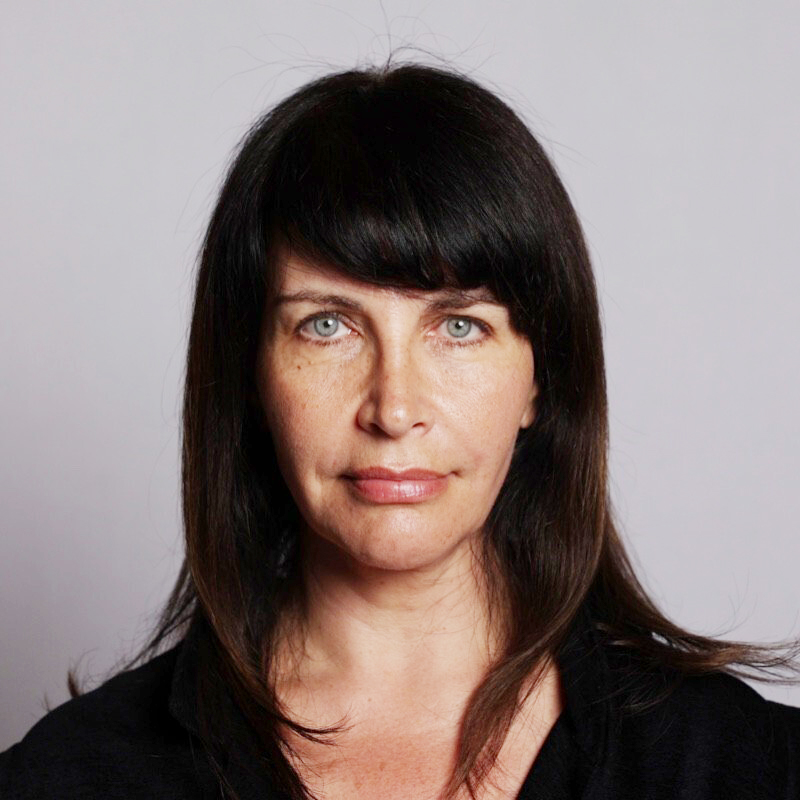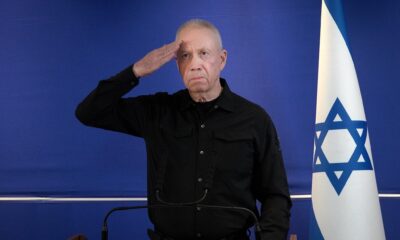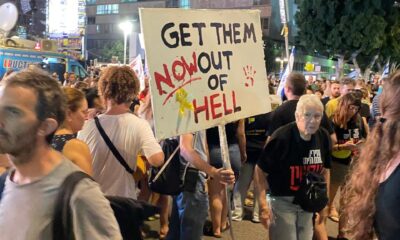
Israel

Why land for peace is a myth in Israel
The Israeli-Palestinian conflict essentially pits Jewish Zionism against Arab anti-Zionism, Israeli academic Dr Einat Wilf told a webinar hosted by the South African Board of Jewish Education and King David Schools on 18 August. Though the Jews were prepared to accept a state in only part of the historical land of eretz Yisrael, the Arabs weren’t prepared to accept a Jewish state in any part of the land, in any borders. “Both sides are trapped in a battle of mutual exhaustion” that they both think they are winning, Wilf said.
At the end of the Cold War in the early 1990s, “land for peace” appeared viable and even attainable for the Israeli left. The equation was that Israel would eventually give up the territory conquered in the 1967 Six-Day War – the Golan Heights, Gaza Strip, West Bank, and the Sinai Peninsula – in exchange for peace with the Arab and Muslim world.
In 2000, Israeli Prime Minister Ehud Barak was in serious negotiations with chairperson of the Palestine Liberation Organisation, Yasser Arafat, under talks hosted by United States President Bill Clinton. “The proposal addressed all the areas that we were told were the obstacles to peace – the occupation, settlements, and Jerusalem,” Wilf said. Israel proposed its withdrawal from Gaza and the West Bank, dismantling settlements or exchanging them for other land, and dividing Jerusalem so that half the city could serve as the capital of a Palestinian state.
“I’m not just talking about the square kilometre that is the Old City in Jerusalem, an area I like to call ‘insanity central’, but 100km2 of Jerusalem neighbourhoods,” Wilf said.
“But Arafat walked away. Abu Mazen [Palestinian Authority President Mahmoud Abbas] walked away from an even more generous offer by Prime Minister Ehud Olmert in 2008,” she said. “And there was no public criticism of this refusal from the Palestinian public or the Arab world. In fact, these leaders were criticised only for negotiating in the first place.”
This was followed by a wave of terror in Israel known as the “Second Intifada”.
“It was the darkest time I remember in Israel,” said Wilf. “Innocent people were blown to bits. It felt like you were playing Russian Roulette with your life every time you went to a café, in a bus, or car.
“It left Israelis in the peace camp asking what Palestinians wanted. They clearly didn’t want an end to occupation, settlements, or Jerusalem – they could have had all this and they didn’t take it. They wanted something so much more. What’s that other thing for which they were prepared to throw away multiple opportunities for statehood?
“The answer was clear and had been consistent for years. We didn’t see it, or didn’t listen. They said, ‘From the river to the sea, Palestine will be free’ and you can add ‘of Jews’ to the end of that. First and foremost, there should be no Jewish state in any part of the land,” Wilf said.
At every juncture when faced with the possibility that Jews would have some of the land, the Palestinians walked away. “In 1967, 2000, 2008, the Arabs said, ‘No! No! A thousand times No!’ This is the conflict. It’s incredibly simple in essence,” Wilf said.
“How do we get to peace? Either the Jews give up Zionism or the Arabs give up anti-Zionism. The problem is that both sides believe they are winning.”
She said many Arabs describe Israel as a “second Crusader state”, peopled by foreigners – “European, white-settler colonialists” with no rights or connection to the land, who should therefore be thrown out.
However, the Abraham Accords got some Arab states to abandon anti-Zionism. “And they are brilliantly named. There’s no better word than ‘Abraham’ to flip the narrative that Jews have no bond to the land. I wrote an opinion piece with two young Emiratis who insisted on saying that anti-Zionism had been an utter waste of time and money.”
“The Palestinians’ so-called ‘right of return’ for all those who fled or were exiled in 1948 and 1967 isn’t a mere bargaining chip in negotiations. In the 2000s, we didn’t believe that this is what they really wanted. Faced with a choice, we thought they would exchange this ‘right’ for their state. We were wrong.”
The Arabs recognised that if Palestinian refugees were absorbed into their host countries, this would be a de facto acceptance of Israel, and hence the end of the war. “They aren’t willing to do that,” Wilf said. “They blackmail the West to keep these people perpetual refugees who would one day return. They are indulged, and maintain this perennial loophole, a vital part of Palestinian identity. To be Palestinian is to be a Palestinian refugee.
“The Palestinians’ top priority isn’t their state, it’s no Jewish state. And when they say they support two states, what they mean is a Palestinian state in the West Bank and Jordan, and a Palestinian state in what’s now Israel.” They never say that one of the two states should be a Jewish state. “It’s disingenuous to say that they ever supported two states and now reluctantly support one state. That was always their goal.”
She noted that the past two decades have devastated the Israeli left and right, creating a large centrist political bloc. “If the price for real peace with the Arab world was the West Bank, about 70% to 80% of Israelis would support it and say it’s totally worth it. But ‘land for peace’ as a compelling political idea is dead. It’s not why we don’t have peace now.”











Monty Goldin
August 25, 2022 at 4:01 pm
Einat Wilf after a visit to the Republic of South Africa described it as a Disneyland of Hate.
I recommend her article in Sapir journal.
Can be found online.